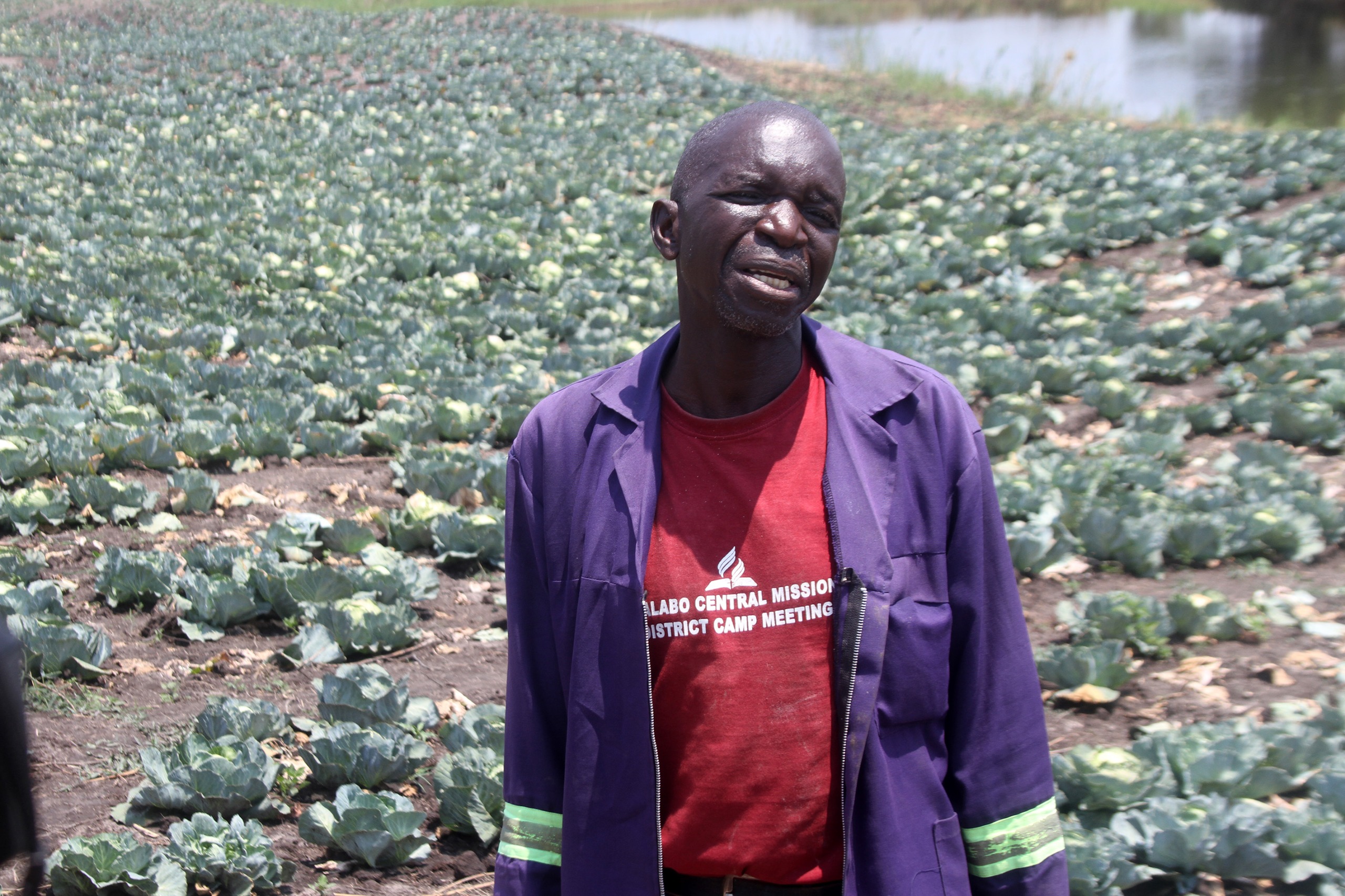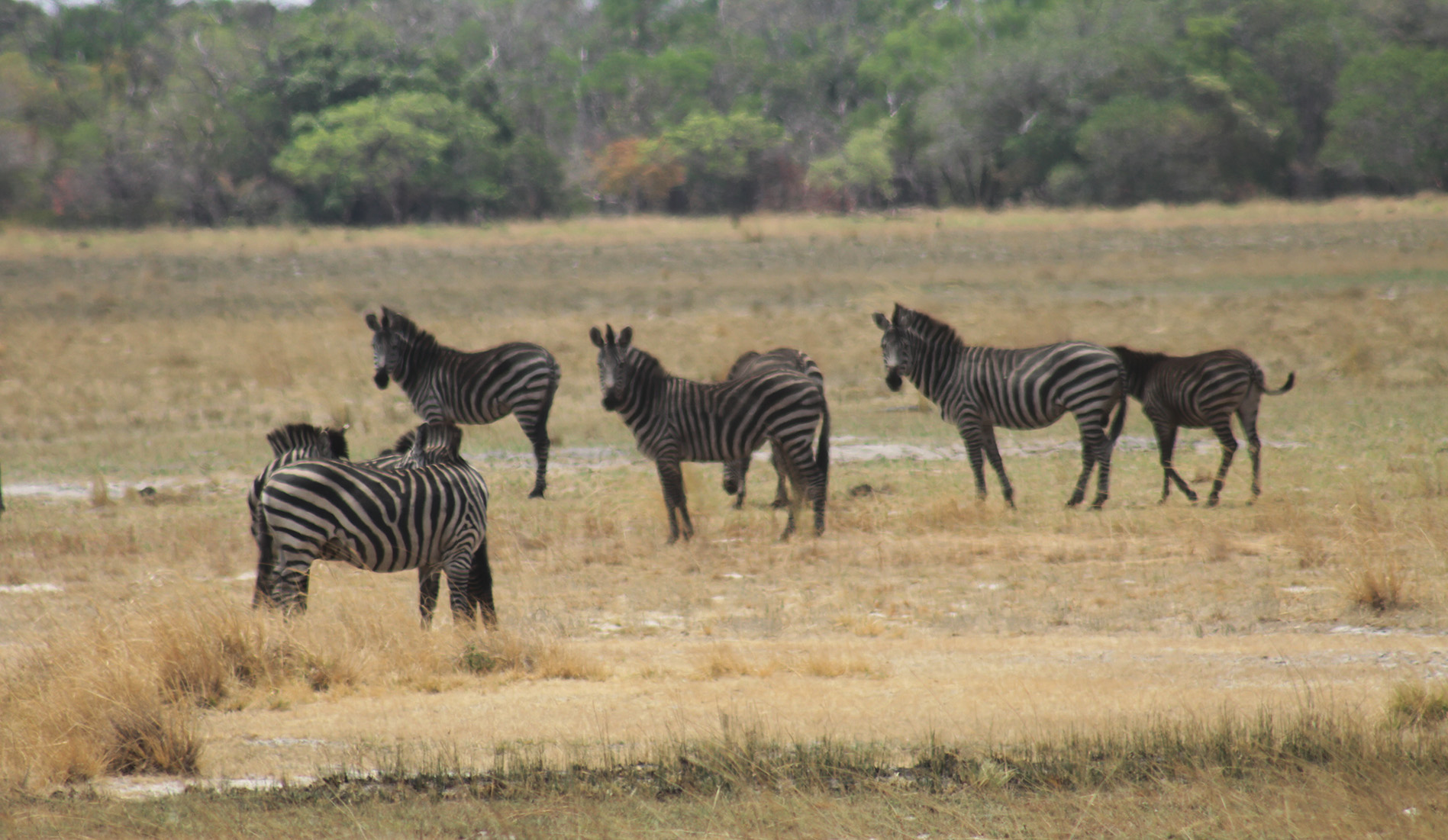CHISHIMBA BWALYA
Kalabo
MUBIYANA Amulomba had been a teacher for 30 years before he decided to retire and venture into active farming in 2020.
However, swapping a white-collar job for a hoe and gardening work was not a straight-forward decision, especially for a 55-year-old based in the Liuwa Plain National Park, where the economy has often been dominated by fishing, as well as wildlife and trophy hunting in the years past.
The Liuwa Plain National Park is home to over 11,000 people who have, since time immemorial, coexisted with wildlife.

According to statistics by Kalabo Town Council, 85 percent of people in the district, where the park is located, are experiencing high poverty levels.
But Mr Amulomba’s risk paid off, thanks to African Parks (AP), which at the time was just two years into implementing the Sustainable Agriculture Programme, which targeted improving food security and community livelihood for people living within the national park.
“This programme has changed my mind,” a visibly elated Mr Amulomba explained to journalists who visited his farm recently.

The area is about 20 minutes away from the newly-constructed Luanginga bridge, which connects Kalabo Central and Liuwa constituencies.
“I was managing in a minimal way, [but] it was not okay,” he says in reference to life before benefiting from AP’s agriculture initiative.
“But this time I have got two daughters who are doing nursing. One is in Mporokoso, one is in Chilubi. They don’t starve. Each time they request pocket money, I send it.”
On a small piece of land near Luanginga River and armed with a solar-powered irrigation system, the former school head cultivates watermelons, maize and cabbages which he supplies to Kalabo Boarding Secondary School.
“So just today, about 200 [heads] of cabbage have gone to Kalabo Boarding. Each cabbage is K15. If you multiply K15 by 200 it’s K3,000. So, see how African Parks is alleviating poverty? We are very happy.”
Mr Amulomba’s story is one of at least 4,600 farmers that have so far been trained in Liuwa under the sustainable agriculture programme being implemented by AP.
Such initiatives by the multinational non-governmental organisation are part of a myriad of long-term measures that have been implemented over the last 20 years to improve wildlife conservation in the Liuwa Plain National Park.
“So just today, about 200 [heads] of cabbage have gone to Kalabo Boarding. Each cabbage is K15. If you multiply K15 by 200 it’s K3,000. So, see how African Parks is alleviating poverty? We are very happy.” – Mr Amulomba
Once considered a major wildlife facility as far back as the 19th century, Liuwa underwent a significant drop in game population in the early 2000s due to poaching and unsustainable trophy-hunting.
By the late 1990s, the lion population had been depleted to zero, save for one feline named Lady Liuwa.
This prompted the Department of National Parks and Wildlife and the Barotse Royal Establishment to engage African Parks in 2003 who began managing the facility.
In a bid to change the narrative, AP has been constantly engaging the community through sustainable methods of livelihood, away from poaching and engaging in environmentally friendly agriculture.
The efforts are paying off, with wildlife numbers on the rise. Liuwa Plain National Park now boasts the second-largest wildebeest migration in Africa after Serengeti in Tanzania.
“The numbers of game have improved, we have reintroduced game in the park that was previously extinct in the area, referring to buffalo, referring to eland, the lion population is growing,” park manager Deon Joubert told reporters after an event in Kalabo last week.
“We have just introduced wild dogs and they are doing well, a very good success story. With the help of our partners and our communities, and without them it would not have been possible.”

At the same event, attended by His Royal Highness Prince Muwendaweli Imwiko in Kalabo, AP handed over a Hino truck to the Lewanika Community Resources Board (CRB) to boost transportation of agricultural produce for the community of Liuwa.
A fish-drying facility was also handed over. The facility, based in Munde, has been constructed at a cost of US$33,000.
The donation was also followed up with 12,500 textbooks at a cost of US$40,000 which will be given to seven schools within Liuwa.
The schools to receive the books include: Mishulundu, Libonda, Mutaa, Salunda, Luoke-East, Sishekanu and Lukoko.
The gesture has elated Kalabo District Commissioner Musangu Njamba.
“This is a testament that if communities work together in conservation and protecting natural resources, fruits are visible.
“The fish-drying facility located in Munde is meant to empower local people and realise value from their fish resource. I remember how challenging it was in the past to process fish among Liuwa communities and later have access to markets in Kasumbalesa. With the construction of this facility at Munde and the purchase of this truck as a joint venture between African Parks and the CRB, the narrative has changed.”
After 20 years of managing and restoring the park’s glory, there is hope within AP that the agreement which was signed in 2004 will be renewed.
“It has been an honour working with our partners and we are looking forward to another 20 years working with our partners in achieving a lot of goals for the communities,” Mr Joubert said.


